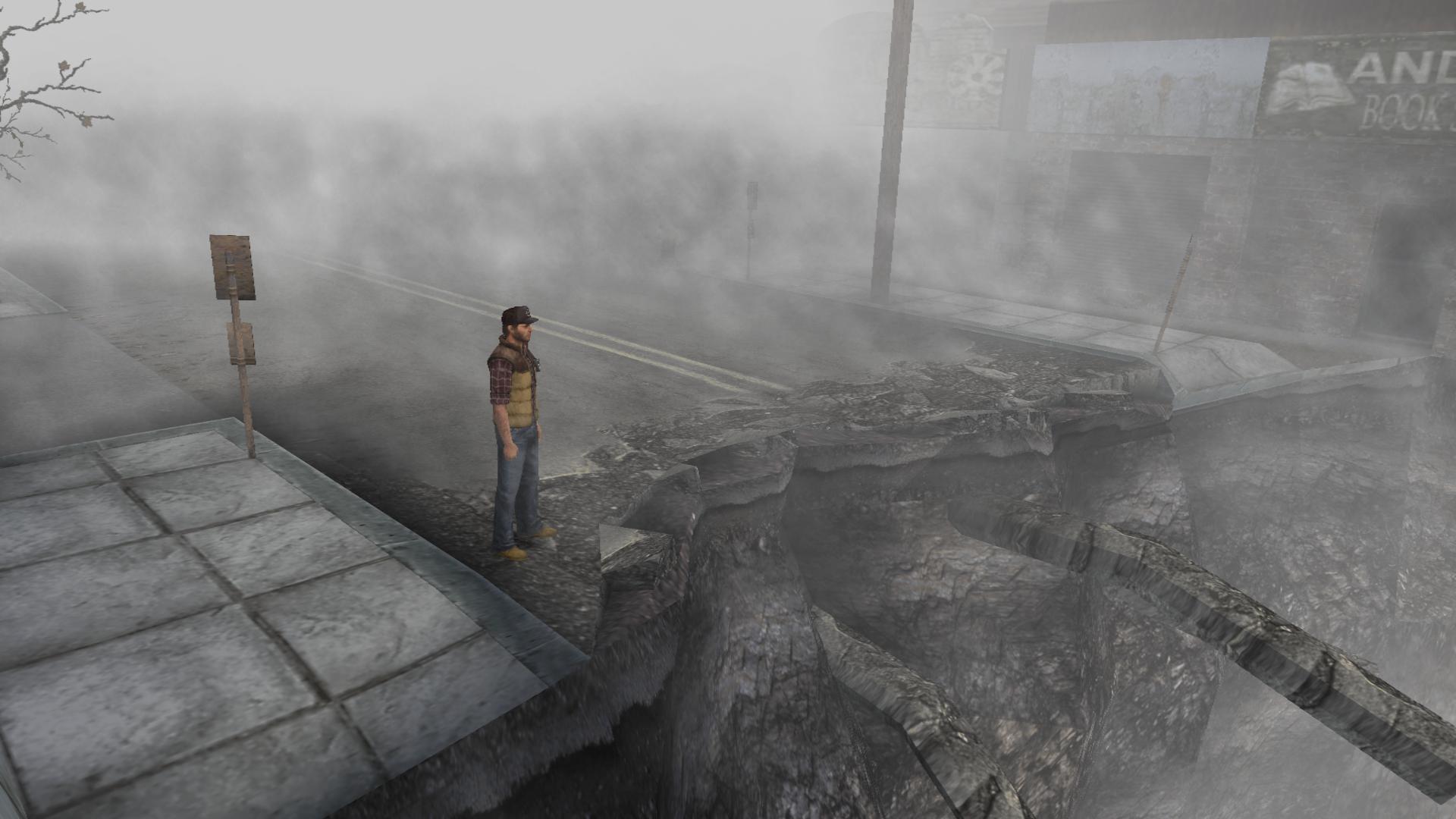I have been waiting a long time for Assassin’s Creed III (and ACIII:Liberation, but I’ll save that for another post). I pre-ordered my copy, mapped out my gameplay time, and did the happy dance when I learned that my mother would be visiting during the release window so that Pea would be entertained during my absence from the real world. Who would’ve thunk it? Two minority assassins in one game series, both coming out at the same time! I was excited about both games, but had put it in my head that I would play Liberation first. After all considering the fact that Ubisoft had hired a Native American consultant to make sure that they were on the up and up, ACIII was going to be the least problematic of the two, right?
Well, let’s just say that when I heard from a friend that she had been playing ACIII for hours and still hadn’t seen Connor I was a bit intrigued. My response was more like “What the F*ck?” or “You’re F*cking kidding me!”, but let’s just say it was intrigue. So I put my sweet little Aveline (ACIII:Liberation) on the back burner to find out what the hell was going on with Connor. This was his game! This was his story! We are finally going to get to see how Ubisoft (Montreal) was going to deal with not only the wrongs committed against folk of the African diaspora, but also those committed against the indigenous folks that have all but been wiped out in an (ongoing) genocide. I wanted (and still want) to see how Ubisoft is going to make the murder of white men (British and American alike) by a Native American palatable to a predominantly white, American audience.
Now bear with me folks and recognize that this post (and those sure to come later) are not a review of ACIII, but more of a reaction to the game as a cultural artifact as it reveals itself to me through gameplay (ie I reserve the right to rant like a mad woman and then come back later and change my mind). At this point I have played to the end of Sequence 3 (I won’t spoil it by telling you more than that if you haven’t played the game). Even before the game was released I had begun to “write” Connor’s narrative for myself. Piecing it together from the cinematic and gameplay trailers that Ubisoft so strategically released. Connor was the legitimate assassin born of injustice, not patrilineage. (Remember my earlier post about the Connor backstory that was being released in the US and the UK?) He was the one who was going to start taking folks out in retribution! His entire village was destroyed and everyone killed (according to the trailer) so somebody had to pay, right? So he goes to another Native American for his training. He is the First World Assassin. A new breed. He was born of righteousness and his agency allows him to go out looking for some good old fashioned payback!
And then I pushed start. And I met Haytham Kenway, Connor’s father. And I played through his story…a lot. Hours in and I am still friggin’ playing Haytham. Don’t get me wrong…Haytham is a pretty badass assassin, but he ain’t Connor…and he ain’t Native American! He’s just another Brit who’s fighting the Templar and trying to save the world. Yes, I know that eventually he will be Connor’s father, but do I really need to play him for 5 hours and counting before I get to the assassin that Ubisoft has been promising us all from the beginning? And then I calmed down a bit and pried my controller from the newly formed hole in my game room wall and thought about it for a minute.
Why Haytham? What purpose did he serve? Did we have to play interminable hours of Altair and Enzio’s daddies before we got to their stories? Nope, but then they weren’t the minority characters in a still all to problematic racial history of the US.
Ubisoft pulled a bait and switch, it promised us (ok me…but it is all about me, right?) one thing and then proceeded to deliver us something else. With all of this Haytham in my face and in the construction of Connor as an assassin , he (Connor) becomes less of the Native American badass and more of the assassin who harnesses/overcomes/incorporates his savage side to do what all of his great white ancestors have done. Kill Templars (and anyone doing their bidding) rather than a man on a mission to right the wrongs that have been committed against his people (despite his own connection to them via bloodline).
And then, right before I started this post it struck me. I know why Haytham just sticks in my craw! He is the personification of the infamous letter of authenticity that precedes every slave narrative. Yes, I recognize that Connor is neither African (American) nor a slave, but the feeling is still the same. Connor, as Ratonhnhaké:ton, is unworthy of being an assassin. He is tainted. He can only be an assassin (and avenge the deaths of his Native people?) as Connor Kenway, the son of a white man and not the son of a Native American woman. While Ubisoft tries to play up his Native heritage he is another instance of the great White savior coming in to save/avenge the lowly savage. As the game unfolds it becomes clearer and clearer that their representation of Ratonhnhaké:ton was never going to be as problematic as I thought that it was going to be. But hell, call me the eternal optimist (or just the person who doesn’t want to be pissed by a $60 purchase), but I am still optimistic that some good can be pulled out of this in the end.
There is so much to think about/process/vent about here and I have not even gotten to the main content yet (or have I?). I am really looking forward to digging into this game with a critical eye (and ACIII:Liberation) so you folks can expect to hear and see a lot more about this in the coming days, weeks, and months. Also check out episode 45 of the podcast for more discussion of ACIII and history in games more generically.





4 thoughts on “I Was Born An Assassin: On Minorities, Agency, and Legitimacy in Video Games”
As someone who didn’t really play any of the Assassin’s Creed series except 4 hours of the first one, I was super excited for ACIII based on the Connor story alone. Being Cherokee and interested in NA representations in games, well, let’s just say that ACIII was research gold. I could not wait to see what Ubisoft had done with this narrative, and like you, I was super optimistic and hopeful. And I still am.
I had the same reaction as you–Haythem? Really? Who is this guy, why am I not in the colonies, and why am I not jumping from tree to tree?? Even assuming that he was Connor’s father, I wasn’t that engaged. To put it in context, I couldn’t even remember my character’s name other than “The guy who is not Connor and has a British accent.” But that was my motivation–I pushed through. I wanted to be Connor. And, finally, I made it. And I think it might change your perspective a bit…it certainly changed mine.
Without spoilers, I’m just gonna say–push through. I think there are still issues to be dealt with especially given the whole Assassin bloodlines connections, the idea of a tainted heritage, and the role of othered characters. But I’m very curious to see what your take on it will be after you make it to Connor. Then, the questions shift to asking if the backstory of Connor’s father really necessary (historically, ethnically, politically) for us to play through for a good chunk of the game or is it needed to help break/reinforce narratives to make this palpable (especially) for an American audience.
I’m still on the fence on some issues, but I really think that the fact these games can even usher in these discussions in intelligent ways is better than what has been done in the past in regards to both race and gender (which comes up in fantastically in Connor’s story, by the way, especially the subtle representation of matrilineal cultures).
So I say, keep playing Sam! I can’t wait to see what you think when you get to Connor (again, FINALLY)–great stuff and keep posting! If anything, we can say this game at least does something.
Hey Em, thanks for sharing. I am definitely going to be pushing through for a bit. My next post is shaping up to be a mix of ACIII and Liberation and dealing with the treatment of women of color. There’s a teaser for you. Now I just want you to promise to come back and continue this conversation with me!
I’m going to assume you finished by now (or have gotten well into the game). Haytham wasn’t even 1/4th of the game play, and the first three sequences were for Desmond’s benefit in order to give him a more informed opinion for his choice at the end and for the player to have more intimate knowledge of Haytham when Connor finally meets him again.
Haytham represents the intimacy of white supremacy in Connor’s story, whereas the war shows how white supremacy affects larger populations. Achille’s, too, echoes that it’s better to be thought of a “dirty” white man such as a Spaniard or an Italian than to be seen as a person of color. Connor spends pretty much his entire time from when he’s introduced (holding a book, which is a symbol of white culture) until his the last sequence fighting with being true to his heritage or bowing to systematic oppression of native people by white men of power. As I like to say, Connor’s storyline is basically him going, “WHITE PEOPLE NEED TO STOP FUCKING SHIT UP.” Because that is literally all that the non-side mission NPCs do. They fuck shit up and Connor has to fix it because he gets shit done.
Unfortunately I haven’t finished the game yet. At the end of the semester it usually takes me about a month to finish big games like this, but I am working through. I have worked through the second 3 sequences+ and Achilles is very much in the picture. I am actually working on a post about what this section says about race and identity politics in the colonies (and in the US period). I understand why the Haytham sequences were there, what I don’t like is the message that it sends. It could have been done in a different way that didn’t make it seem so authenticating.
I’ll write more about Achilles (and the purpose that he serves in my post so that I don’t have a 3000 word comment) but I can appreciate him as a character. I’m also not so sure that I like Connor so much for the character that he is as for what he learns and what he does with that information.